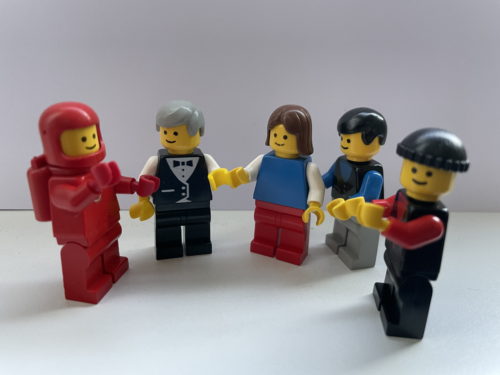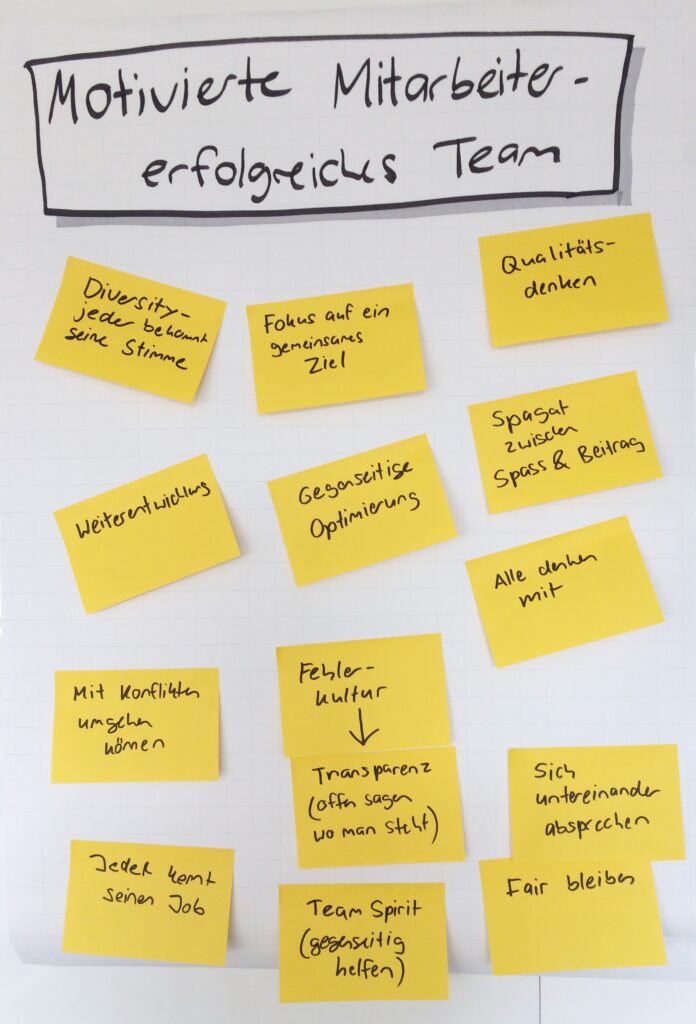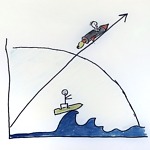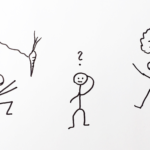
Can a good team become even better? Even before problems arise, it pays to invest in team development. Expert knowhow and diversity are necessary to address the complex issues that modern teams face. However, a team does not always make the most of this diversity - it often remains a group of individuals. Different communication styles and needs can collide and lead to open or hidden conflicts in the medium term. Preventive team development helps to recognize and address these tensions before they become manifest as a problem.. Continuous investing in a team prevents avoidable fluctuation and supports talent retention. In this matter, I offer sparring also for Human Resources or Learning and Development leads.
When Does it Make Sense to Develop Teams Preventively?
The classic case: You are the new leader of a team and want to make sure that you all have an optimal start into working together.
After all, well-functioning teams are not a matter of course (as, for example, described in this HBR article). Preventive team development for one means laying a good foundation for a great team culture right from the start. But even after that, it is important to maintain it regularly, e.g. with workshops on collaboration, retrospectives or to support for self-organization.
Like culture, a team naturally evolves on its own (a team actually cannot NOT evolve). But this development may not always happen in a direction that is desirable for the participants or the organization. It is therefore advisable to provide the right impulses from time to time, which bring the team on a productive course or help to keep a favourable course.
The time spent on this pays off in the same way that maintaining a machine or a yearly strategy retreat ultimately pays off. That's the only way teams will be ready to continue working in a growing company. By the way: The management team with its great impact on success must be able to collaborate particularly well in a growing company...

How Does That Actually Work?
Preventive team development means regularly setting aside time every year for the sustainable development of the team. Depending on the company, we will determine (e.g. together with HR or management) which modules and focus areas make sense for their particular context.
The workshops involve those affected at various levels in such a way that they can contribute their own ideas and needs for sustainable implementation. Only if the context, needs and restrictions of the team and its leadership are taken into account is there a way to find applicable solutions. Therefore, I refrain from applying a 08/15 workshop, a specific Team Health software solution or a defined framework. Nevertheless, the following two flyers (in German) are examples of how such workshops can be structured.
Blog Posts Related to "Preventive Team Development" (in German)
 Teamcoaching: Einfach so, aktiv oder präventiv? - Teamcoaching ermöglicht es, die Mitarbeiterzufriedenheit zu steigern, die Fluktuation zu verringern und die Leistung des Teams nachhaltig zu fördern und zu erhalten. Was damit gemeint ist ,und wie sich aktive von passiver Teamentwicklung unterscheidet, erfahren Sie in diesem Beitrag.
Teamcoaching: Einfach so, aktiv oder präventiv? - Teamcoaching ermöglicht es, die Mitarbeiterzufriedenheit zu steigern, die Fluktuation zu verringern und die Leistung des Teams nachhaltig zu fördern und zu erhalten. Was damit gemeint ist ,und wie sich aktive von passiver Teamentwicklung unterscheidet, erfahren Sie in diesem Beitrag. Teamzusammenhalt trotz Diversität: Wie gelingt das? - Ein guter Teamzusammenhalt ist nicht nur gut für die Teamperformance, sondern verhindert auch Fluktuation. Doch wie gelingt das auch in einem Team mit ganz diversen Mitgliedern?
Teamzusammenhalt trotz Diversität: Wie gelingt das? - Ein guter Teamzusammenhalt ist nicht nur gut für die Teamperformance, sondern verhindert auch Fluktuation. Doch wie gelingt das auch in einem Team mit ganz diversen Mitgliedern? Immer besser werden? Continuous Improvement mit Blick aufs Optimum - Was heisst eigentlich "immer besser werden"? Eine Skala zur Bewertung kann nie absolut sein, sondern muss sich auf die gegenwärtige Situation und auf das überhaupt Wünschbare beziehen. Alles andere schafft nicht nur mehr Stress und Bewertungsfrust, sondern hat beim Verlassen des Optimums sogar negative Konsequenzen für die Organisation.
Immer besser werden? Continuous Improvement mit Blick aufs Optimum - Was heisst eigentlich "immer besser werden"? Eine Skala zur Bewertung kann nie absolut sein, sondern muss sich auf die gegenwärtige Situation und auf das überhaupt Wünschbare beziehen. Alles andere schafft nicht nur mehr Stress und Bewertungsfrust, sondern hat beim Verlassen des Optimums sogar negative Konsequenzen für die Organisation.  Wie schaffe ich Vertrauen in meinem Team? - Vertrauen im Team ermöglicht erst eine erfolgreiche Zusammenarbeit. Mit den richtigen Voraussetzungen und dem Fördern von psychologischer Sicherheit kann es sich über Zeit entwickeln. 5 Tipps wie sie erfolgreich in eine vertrauensvolle Zusammenarbeit starten.
Wie schaffe ich Vertrauen in meinem Team? - Vertrauen im Team ermöglicht erst eine erfolgreiche Zusammenarbeit. Mit den richtigen Voraussetzungen und dem Fördern von psychologischer Sicherheit kann es sich über Zeit entwickeln. 5 Tipps wie sie erfolgreich in eine vertrauensvolle Zusammenarbeit starten. Motivation – Warum man nicht nicht motiviert sein kann - Auch wenn Sie denken, Sie seien dazu überhaupt nicht motiviert - irgendetwas motiviert Sie gerade. Für Ihr Wohlbefinden und auch für die Qualität Ihrer Arbeit kommt es jedoch sehr darauf an, welcher Art diese Motivation ist. Die Amerikanerin Susan Fowler unterscheidet 6 Arten von Motivation.
Motivation – Warum man nicht nicht motiviert sein kann - Auch wenn Sie denken, Sie seien dazu überhaupt nicht motiviert - irgendetwas motiviert Sie gerade. Für Ihr Wohlbefinden und auch für die Qualität Ihrer Arbeit kommt es jedoch sehr darauf an, welcher Art diese Motivation ist. Die Amerikanerin Susan Fowler unterscheidet 6 Arten von Motivation. Purpose, Zweck, Why: Wie man ein Team im Innersten zusammenhält - Erst der Zweck macht das Team zu einem Team - ansonsten ist es eine administrative Einheit, eine Gruppe von Leuten, welche man zur besseren Verwaltung zu einer grösseren Einheit zusammengefasst hat. Wenn ein gemeinsamer Zweck dem Team einen Sinn gibt, können auch die einzelnen Teammitglieder für sich einen Sinn in der Arbeit erkennen. Das erhöht die Motivation, den Zusammenhalt und somit auch das Engagement des einzelnen Teammitglieds.
Purpose, Zweck, Why: Wie man ein Team im Innersten zusammenhält - Erst der Zweck macht das Team zu einem Team - ansonsten ist es eine administrative Einheit, eine Gruppe von Leuten, welche man zur besseren Verwaltung zu einer grösseren Einheit zusammengefasst hat. Wenn ein gemeinsamer Zweck dem Team einen Sinn gibt, können auch die einzelnen Teammitglieder für sich einen Sinn in der Arbeit erkennen. Das erhöht die Motivation, den Zusammenhalt und somit auch das Engagement des einzelnen Teammitglieds. 